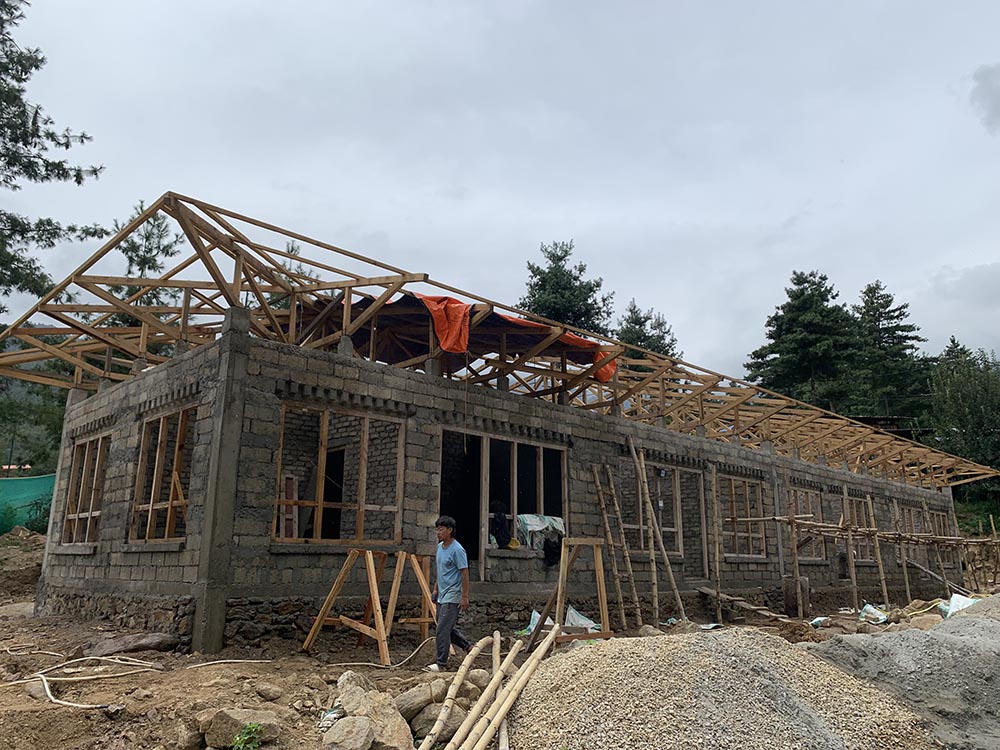Yangyel Lhaden
Come November, 28 workers of Thimphu Thromde can move into bigger and better apartments.
Thimphu Thromde employs 349 workers and of that, 254 workers and their families live in makeshift houses across 14 locations in the city.
Thromde is constructing six houses with 28 units in Motithang and Babesa under the project eco-based adaptation project with Nu 45.7 million funding from UNEP to provide quality shelter to thromde’s workforce.
Three houses of 16 units are being constructed at Babesa and three houses of 12 units are being constructed at Motithang.
The new houses will have two bedrooms, a hall, a kitchen, and a toilet.
“They have been designed in compliance with the country’s building rules and regulations, and the construction has been awarded to three contractors to expedite completion,” a thromde official said.
“Currently, almost 95 percent of our workforce are living in makeshift houses which lack basic amenities,” the official said.
The makeshift houses don’t have access to clean drinking water or proper sanitation facilities, and have smaller rooms.
“Our workforce living in the makeshift houses have become vulnerable to climate change effects such as rising temperature and heat waves, erratic rainfall, and other extreme weather events,” the official said.
He said that workers living in makeshift huts are also vulnerable to health hazards such as malaria and dengue due to a lack of proper sanitation and ventilation.
“Due to instability of the makeshift houses and uncertainty of future events, our workforce members may be confronting significant mental health stresses, affecting their overall wellbeing,” the thromde official said.


